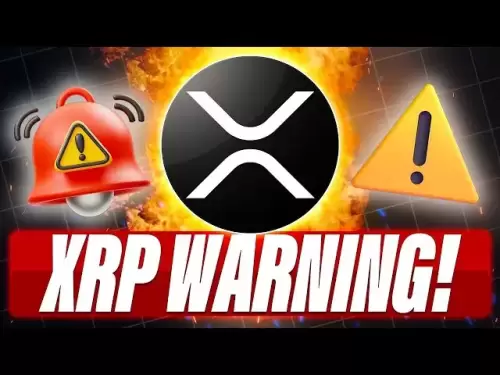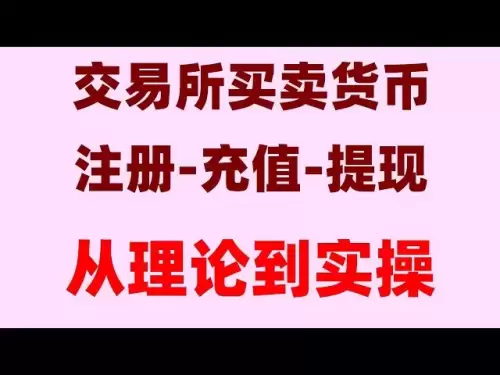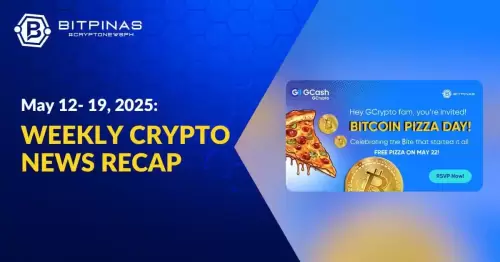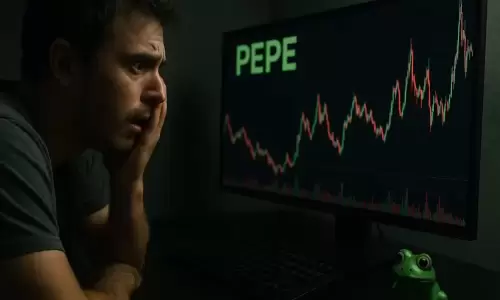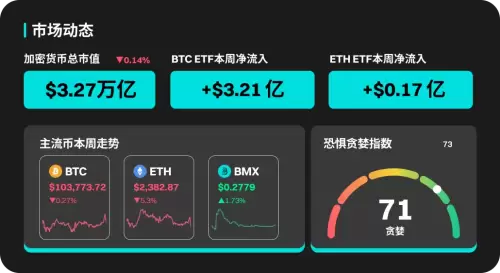 |
|
 |
|
 |
|
 |
|
 |
|
 |
|
 |
|
 |
|
 |
|
 |
|
 |
|
 |
|
 |
|
 |
|
 |
|
새로운 연구는 분산 된 거버넌스 모델, 특히 블록 체인 구동 디지털 커먼즈에서 떠오르는 분산 거버넌스 모델의 진화, 약속 및 함정을 해부합니다.

A sweeping new study has dissected the evolution, promise, and pitfalls of decentralized governance models, especially those emerging in the blockchain-powered digital commons. Titled “Decentralizing Governance: Exploring the Dynamics and Challenges of Digital Commons and DAOs” and published in Frontiers in Blockchain, the study examines how Decentralized Autonomous Organizations (DAOs), tokenized decision systems, and algorithmic rule enforcement are transforming democratic participation and potentially replicating the very centralization they aim to dismantle.
새로운 연구가 분산 된 거버넌스 모델, 특히 블록 체인 구동 디지털 커먼즈에서 등장하는 분산 거버넌스 모델의 진화, 약속 및 함정을 해부했습니다. “분권화 거버넌스 : 디지털 커먼즈 및 DAO의 역학 및 도전 탐색”이라는 제목의 블록 체인에 프론티어에 출판 된이 연구는 분산 된 자율 조직 (DAO), 토큰 화 결정 시스템 및 알고리즘 규칙 시행이 어떻게 민주적 참여를 변화시키고, 해체하려는 중앙 집중화를 잠재적으로 복제하는 방법을 조사합니다.
Using Elinor Ostrom’s foundational principles of commons governance as a theoretical lens, the paper examines how blockchain tools can improve the regulation of shared digital resources. It presents a global critique of DAO mechanisms, from their financial tokenization structures to their environmental and geopolitical implications, revealing that without thoughtful design and legal clarity, DAOs risk becoming exclusionary, plutocratic, and even neocolonial.
이 논문은 Elinor Ostrom의 Commons Governance 원칙을 이론적 렌즈로 사용하여 블록 체인 도구가 공유 디지털 리소스의 규제를 개선 할 수있는 방법을 조사합니다. 그것은 금융 토큰 화 구조에서 환경 및 지정 학적 영향에 이르기까지 DAO 메커니즘에 대한 세계적인 비판을 제시하며, 사려 깊은 디자인과 법적 명확성이 없으면 DAO가 배제, 폴란드 성 및 신경 주의적 위험이 있음을 밝혀냅니다.
Can blockchain-based DAOs really democratize digital governance?
블록 체인 기반 DAO가 디지털 거버넌스를 실제로 민주화 할 수 있습니까?
The study closely examines how decentralized governance systems align with Ostrom’s eight principles for managing common-pool resources. These principles call for locally adaptable rules, collective choice arrangements, monitoring, conflict resolution, and nested governance layers. The paper finds that while blockchain tools like smart contracts, tokenization, and quadratic voting offer scalable self-regulation and transparency, they often fall short in inclusivity and participation.
이 연구는 탈 중앙화 거버넌스 시스템이 공통 풀 자원을 관리하기위한 Ostrom의 8 가지 원칙과 어떻게 일치 하는지를 면밀히 조사합니다. 이 원칙은 지역적으로 적응 가능한 규칙, 집단 선택 계약, 모니터링, 갈등 해결 및 중첩 거버넌스 계층을 요구합니다. 이 논문은 스마트 계약, 토큰 화 및 2 차 투표와 같은 블록 체인 도구가 확장 가능한 자체 규제 및 투명성을 제공하지만 종종 포괄 성과 참여가 부족하다는 것을 발견했습니다.
DAOs such as MakerDAO, MolochDAO, and Commons Stack are cited as examples of decentralized systems that promise participatory governance but often centralize decision-making around early token holders or well-funded delegates. The study highlights how token-weighted voting can quickly devolve into plutocracy, with a small number of large token holders disproportionately influencing governance outcomes. For instance, 53% of DAOs surveyed were found to be largely inactive, with minimal voter turnout as DAO size increased. In Decentraland, average voter participation per proposal was less than 1%.
Makerdao, Molochdao 및 Commons Stack과 같은 DAO는 참여 거버넌스를 약속하지만 종종 초기 토큰 보유자 또는 잘 자금을 지원하는 대표를 중심으로하는 분산 시스템의 예로 인용됩니다. 이 연구는 토큰 가중 투표가 어떻게 다수의 대형 토큰 보유자가 거버넌스 결과에 영향을 미치는 소수의 대형 토큰 보유자와 함께 빠르게 다가오는 방법을 강조합니다. 예를 들어, 조사 대상 DAO의 53%가 DAO 크기가 증가함에 따라 최소한의 유권자 투표율로 크게 비활성화 된 것으로 밝혀졌습니다. Decentraland에서 제안 당 평균 유권자 참여는 1%미만이었습니다.
To mitigate voter apathy and encourage ongoing engagement, mechanisms like delegated voting, employed in MakerDAO and Uniswap, allow users to assign their votes to representatives. However, these often replicate traditional power hierarchies and reduce broader community engagement. Hybrid structures, like the bicameral governance model of the Optimism Collective, combine token-based and representative systems to address these inefficiencies, but the study notes they still risk re-centralizing authority.
유권자 무관심을 완화하고 지속적인 참여를 장려하기 위해, Makerdao 및 Uniswap에 고용 된 위임 된 투표와 같은 메커니즘은 사용자가 대표에게 투표를 할 수 있도록합니다. 그러나 이것들은 종종 전통적인 전력 계층을 복제하고 광범위한 커뮤니티 참여를 줄입니다. 낙관적 집단의 바이 카메라 거버넌스 모델과 같은 하이브리드 구조는 토큰 기반 및 대표 시스템을 결합하여 이러한 비 효율성을 해결하지만 연구에 따르면 여전히 재 중산 권한을 위험에 빠뜨립니다.
What tools exist to mitigate centralization in DAO governance?
DAO 거버넌스의 중앙 집중화를 완화하기위한 어떤 도구가 있습니까?
To curb centralization and increase equitable participation, the study highlights several innovative governance models:
중앙 집중화를 억제하고 공평한 참여를 높이기 위해이 연구는 몇 가지 혁신적인 거버넌스 모델을 강조합니다.
Quadratic Voting and Funding: Systems like Gitcoin Grants diminish the disproportionate influence of wealthy stakeholders by applying a nonlinear cost to voting power. These models amplify the collective impact of small contributors, closely aligning with Ostrom’s principle of congruent rules and widespread participation. For instance, quadratic voting and funding systems have been instrumental in mobilizing diverse communities around open-source software development and public goods contributions.
2 차 투표 및 자금 조달 : Gitcoin과 같은 시스템은 투표권에 비선형 비용을 적용함으로써 부유 한 이해 관계자의 불균형 적 영향을 줄입니다. 이 모델은 소규모 기고자의 집단적 영향을 증폭시켜 Ostrom의 합동 규칙 원칙과 광범위한 참여와 밀접한 관련이 있습니다. 예를 들어, 2 차 투표 및 자금 조달 시스템은 오픈 소스 소프트웨어 개발 및 공공재 기여에 관한 다양한 커뮤니티를 동원하는 데 중요한 역할을 해왔습니다.
Reputation-Based Voting: In contrast to token-weighted systems, this model allocates voting power based on a user’s contributions, actions, and trust score, rewarding long-term engagement over financial investment. It supports rule formalization and monitoring, crucial for Ostrom’s framework. However, this model faces risks like sybil attacks and bias unless it’s integrated with cryptographic identity verification to ensure the authenticity of participants.
평판 기반 투표 : 토큰 가중 시스템과 달리이 모델은 사용자의 기여, 조치 및 신뢰 점수에 따라 투표력을 할당하여 금융 투자에 대한 장기적인 참여를 보상합니다. Ostrom의 프레임 워크에 중요한 규칙 공식화 및 모니터링을 지원합니다. 그러나이 모델은 참가자의 진정성을 보장하기 위해 암호화 신원 확인과 통합되지 않는 한 Sybil 공격 및 편견과 같은 위험에 직면합니다.
Soulbound Tokens (SBTs): These non-transferable tokens serve as proof of participation and reputation within a specific community or initiative. Since they cannot be bought or sold, SBTs align governance influence with meritocratic input rather than wealth accumulation, closely aligning with Ostrom’s principle of legitimacy. However, they also raise concerns about privacy and the need for fair distribution systems to prevent elite capture.
SBTS (Soulbound Tokens) :이 양도 할 수없는 토큰은 특정 커뮤니티 또는 이니셔티브 내에서 참여와 명성의 증거 역할을합니다. SBTS는 구매 또는 판매 할 수 없기 때문에 거버넌스 영향을 자산 축적보다는 자비 론적 입력과 일치시켜 Ostrom의 정당성 원칙과 밀접한 관련이 있습니다. 그러나 그들은 또한 프라이버시 및 엘리트 포착을 방지하기위한 공정한 유통 시스템의 필요성에 대한 우려를 제기합니다.
Rotating Governance Councils: By implementing term-limited governance roles and staggered transitions, DAOs can prevent the entrenches of power and introduce diverse perspectives over time. This model closely reflects Ostrom’s principles of accountability and dynamic rule adaptation, varying according to local conditions. It also requires robust mentorship and transition protocols to ensure continuity and knowledge transfer between council members.
회전 거버넌스 협의회 : 기간 제한 거버넌스 역할과 비틀 거리는 전환을 구현함으로써 DAOS는 권력의 확고함을 방지하고 시간이 지남에 따라 다양한 관점을 도입 할 수 있습니다. 이 모델은 현지 조건에 따라 다양한 Ostrom의 책임 및 역동적 인 규칙 적응 원칙을 반영합니다. 또한 협의회 회원들 사이의 연속성 및 지식 전달을 보장하기 위해 강력한 멘토링 및 전환 프로토콜이 필요합니다.
The study emphasizes that these mechanisms must be contextually applied and embedded in broader governance frameworks which balance efficiency, transparency, and inclusivity.
이 연구는 이러한 메커니즘이 효율성, 투명성 및 포용성의 균형을 잡는 광범위한 거버넌스 프레임 워크에 문맥 적으로 적용되고 포함되어야한다고 강조합니다.
The pressing legal, environmental, and ethical challenges faced by DAOs
DAOS가 직면 한 법적, 환경 및 윤리적 도전
Despite their innovative promise, DAOs face critical challenges beyond internal governance. Legally, most jurisdictions lack comprehensive frameworks to recognize DAO structures, allocate liability, and define their cross-border operations. The study examines the Wyoming DAO LLC law as an early effort to grant DAOs limited liability personhood, enabling them to own assets, enter contracts, and sue or be sued. However, critics argue that this framework imposes traditional corporate norms on decentralized systems, risking re-centralization and setting the stage for jurisdictional conflicts.
그들의 혁신적인 약속에도 불구하고 DAO는 내부 거버넌스를 넘어서 중요한 도전에 직면 해 있습니다. 법적으로, 대부분의 관할 구역에는 DAO 구조를 인식하고, 책임을 할당하며, 국경 간 운영을 정의하기위한 포괄적 인 프레임 워크가 부족합니다. 이 연구는 와이오밍 DAO LLC 법을 DAOS 유한 책임 인격을 부여하고 자산을 소유하고 계약을 체결하고 고소를 당할 수 있도록 초기 노력으로 조사합니다. 그러나 비평가들은이 프레임 워크가 분산 된 시스템에 대한 전통적인 기업 규범을 부과하여 재 중앙화를 위험에 빠뜨리고 관할권의 갈등을위한 단계를 설정한다고 주장한다.
The paper also delves into the environmental footprint of blockchain infrastructure, especially in Proof-of-Work (PoW) systems used by Bitcoin and early Ethereum. Case studies from Chelan County, Washington, and Dresden, New York demonstrate how cryptocurrency mining has strained local energy grids,
이 논문은 또한 Bitcoin과 Early Ethereum에서 사용하는 POW (Proof-of-Work) 시스템에서 블록 체인 인프라의 환경 발자국을 탐구합니다. 워싱턴 주 첼란 카운티와 뉴욕 드레스덴의 사례 연구
부인 성명:info@kdj.com
제공된 정보는 거래 조언이 아닙니다. kdj.com은 이 기사에 제공된 정보를 기반으로 이루어진 투자에 대해 어떠한 책임도 지지 않습니다. 암호화폐는 변동성이 매우 높으므로 철저한 조사 후 신중하게 투자하는 것이 좋습니다!
본 웹사이트에 사용된 내용이 귀하의 저작권을 침해한다고 판단되는 경우, 즉시 당사(info@kdj.com)로 연락주시면 즉시 삭제하도록 하겠습니다.




















